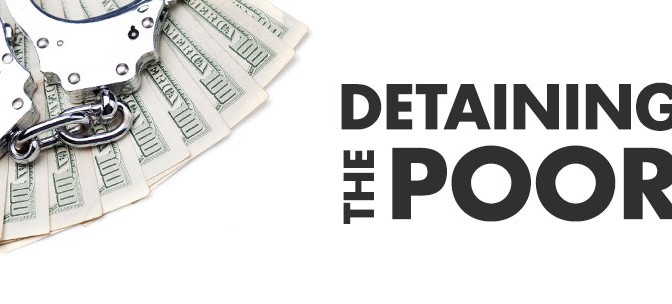'In our country,' said bill co-sponsor Sen. Kamala Harris, 'whether you stay in jail or not is wholly determined by whether you're wealthy or not – and that's wrong.'

Civil liberties and criminal justice reform groups are celebrating the introduction of a new bill in the U.S. Senate on Thursday that would overhaul the nation's money bail system which critics have long decried for incarcerating people regardless of guilt or innocence but simply because of their inability to pay.
Introduced by Sens. Kamala Harris (D-Calif) and Rand Paul (R-Ky.), the Pretrial Integrity and Safety Act of 2017 is being applauded for addressing at least a portion of the pervasive inequality found throughout the U.S. justice system.
"Too many people in this country must spend weeks, months, or even years in jail waiting for trial only because they can't afford bail," said Kanya Bennett, legislative counsel at the American Civil Liberties Union, which has endorsed the bill. "Even though these people are innocent in the eyes of the law, they’re punished, deprived of their freedom with disastrous consequences for their families and their lives."
The bill, which can be read in full here, would provide funding and federal guidelines to incentivize state and local governments to either scrap their money bail systems or greatly reform them.
"Our justice system was designed with a promise: to treat all people equally," Sen. Harris said in a statement. "Yet more than 450,000 Americans sit in jail today awaiting trial and many of them cannot afford 'money bail.' In our country, whether you stay in jail or not is wholly determined by whether you're wealthy or not – and that's wrong. We must come together to reform a bail system that is discriminatory, wasteful, and fails to keep our communities safe."
By specifying that any conditions placed on a defendant's release "should be based on the least restrictive, non-financial conditions that a judicial officer determines is necessary," the bill could potentially limit the negative impact on individuals and families—while also providing local governments huge savings. Ames Grawert, a criminal justice researcher with the Brennan Center for Justice, told the Guardian the proposal could go a long way in reversing some of the policies that have driven up incarceration rates in the last decades.
"We know that the 1984 [tough-on] crime bill did have an effect on states, did convince states to adopt tougher sentencing laws, did convince them to build more prisons – so the idea is that basically, if you flip those incentives on their head, maybe you could incentivize a different kind of behavior," said Grawert.
While the bill is far from perfect, said the ACLU's Bennet, "its reforms would be progress towards fixing the systematic problems that have led to mass incarceration."
Republished with permission under license from CommonDreams.

